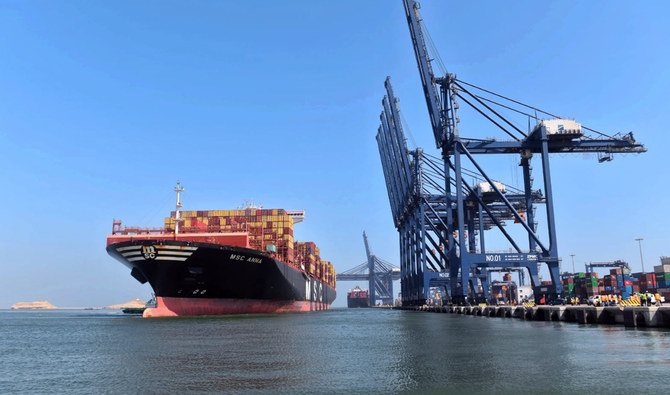KARACHI: Pakistan is expected to sign a $2 billion investment deal with a European shipping firm by October this year, the Pakistani maritime affairs minister said on Thursday, amid growing global interest in Pakistani ports.
The statement came weeks after AP Moller–Maersk (Maersk) Chief Executive Officer Keith Svendsen’s visit to Pakistan, where he met top officials to explore opportunities in Pakistan’s maritime sector.
In a statement on Thursday, Maritime Affairs Minister Qaiser Ahmed Sheikh said the European company would invest in logistics and infrastructure at the Karachi Port Trust (KPT).
“A well-known European company has shown interest in investing $2 billion in Karachi Port Trust,” Sheikh said, without naming the firm. “The company is expected to sign the memorandum of understanding by October.”
Sheikh said the European firm also intended to set up a shipbreaking project in Pakistan.
He told Arab News this month that Danish shipping giant Maersk was interested in investing in a terminal and port as well as allied infrastructure, including connecting bridges, in Pakistan.
“We had very good discussions with them and they had shown eagerness and told us that they will submit proposal in a few days,” he said on May 7. “They want to take a terminal. There is some area where there is depth in the sea, where big ships can be anchored.”
Maersk has grown into a leading provider of logistics and supply-chain services across Pakistan. It has around 20 percent market share in Pakistan’s containerized import-export activities, according to Pakistan’s information ministry.
In January, the Danish shipping firm announced new smart logistics and warehouse facilities in China, Norway and Pakistan.
“With a vast network of warehousing and depot facilities across the country, including our flagship logistics hub in Port Qasim, Karachi — a sprawling 27-acre complex encompassing over 650,000 square feet of warehouse space — we ensure unparalleled support to Pakistani exporters and importers,” the shipping company said in a written response to Arab News.
“In total, Maersk now operates over a 1.5 million square feet footprint across 7 cities in Pakistan.”
The South Asian nation has already signed an agreement with Abu Dhabi (AD) Ports Group which is investing about $395 million for the development of a container and cargo terminal under a government-to-government (G2G) agreement between the United Arab Emirates and Pakistan.
















